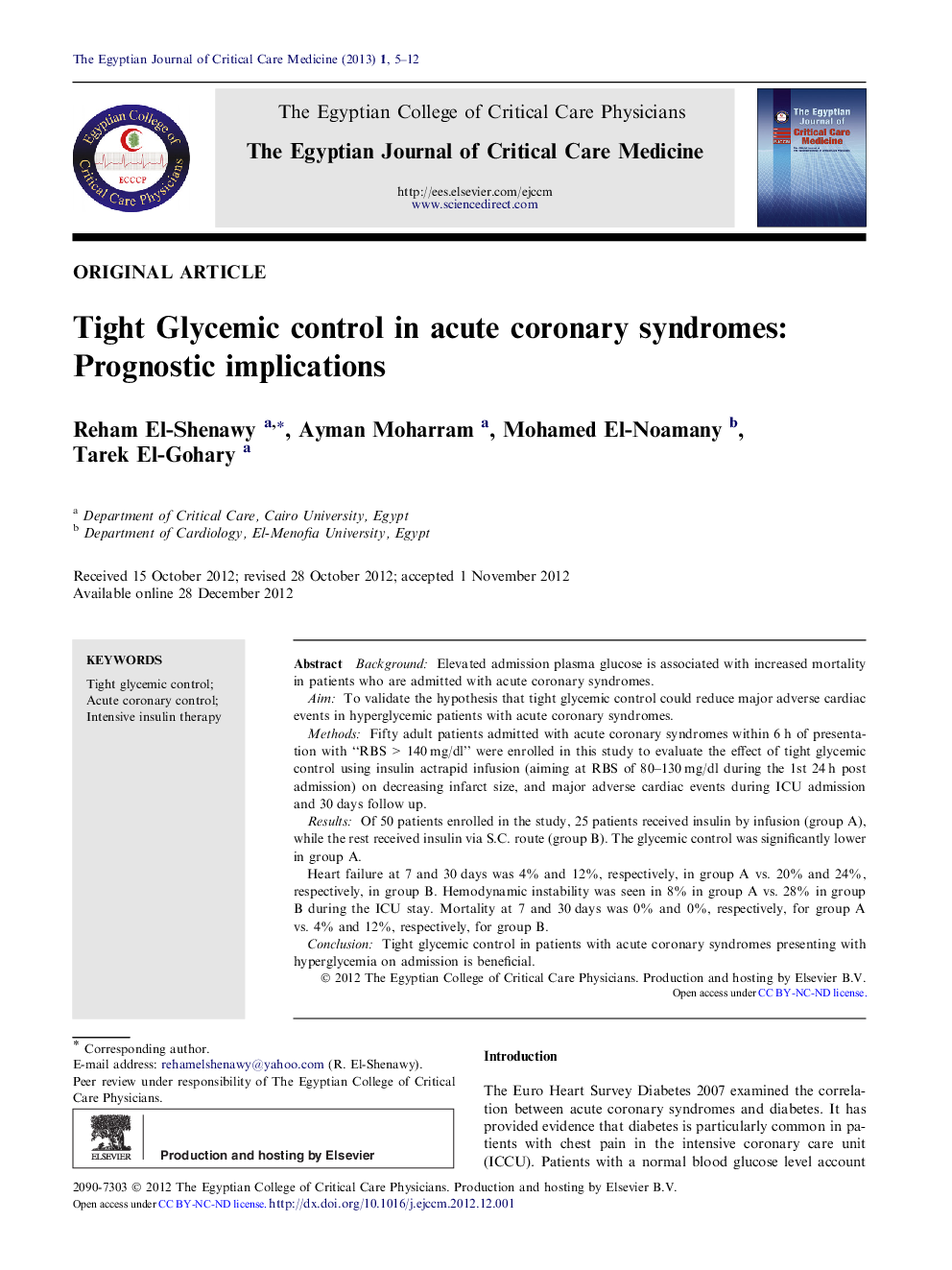| Article ID | Journal | Published Year | Pages | File Type |
|---|---|---|---|---|
| 2910924 | The Egyptian Journal of Critical Care Medicine | 2013 | 8 Pages |
BackgroundElevated admission plasma glucose is associated with increased mortality in patients who are admitted with acute coronary syndromes.AimTo validate the hypothesis that tight glycemic control could reduce major adverse cardiac events in hyperglycemic patients with acute coronary syndromes.MethodsFifty adult patients admitted with acute coronary syndromes within 6 h of presentation with “RBS > 140 mg/dl” were enrolled in this study to evaluate the effect of tight glycemic control using insulin actrapid infusion (aiming at RBS of 80–130 mg/dl during the 1st 24 h post admission) on decreasing infarct size, and major adverse cardiac events during ICU admission and 30 days follow up.ResultsOf 50 patients enrolled in the study, 25 patients received insulin by infusion (group A), while the rest received insulin via S.C. route (group B). The glycemic control was significantly lower in group A.Heart failure at 7 and 30 days was 4% and 12%, respectively, in group A vs. 20% and 24%, respectively, in group B. Hemodynamic instability was seen in 8% in group A vs. 28% in group B during the ICU stay. Mortality at 7 and 30 days was 0% and 0%, respectively, for group A vs. 4% and 12%, respectively, for group B.ConclusionTight glycemic control in patients with acute coronary syndromes presenting with hyperglycemia on admission is beneficial.
